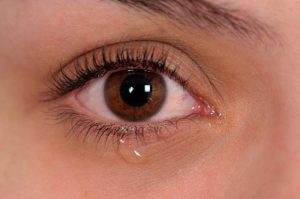 Burning eyes can be irritating and it may feel like your eyes are on fire. It can be accompanied by itching, tearing, or eye discharge as well. There are many different causes of burning eyes and they range from simple to complex.
Burning eyes can be irritating and it may feel like your eyes are on fire. It can be accompanied by itching, tearing, or eye discharge as well. There are many different causes of burning eyes and they range from simple to complex.
While the eyes are generally good at keeping foreign substances out, unavoidable environmental influences— such as chemicals in your shampoo or pollen—can make their way into the eyes, leading to discomfort. Unfortunately, not all causes can be easily traced, as many of the causes of burning eyes can be microscopic in nature, infecting your eyes before you even know it.
What causes burning eyes?
Advertisement
A burning sensation of the eyes typically indicates that there is some form of irritation or inflammation occurring there. It’s your bodies way of telling you that you aren’t alright. Considering your eyes provide one of your most important senses, it’s a good idea to listen to the signals of your body.
Your eyes naturally produce tears to help wash away any irritants. That’s why when something gets into them, the first symptom is excessive tearing.
The following are some common ways of developing burning eyes:
Eye strain: Considered the most common cause of burning eyes, as every person has experienced eye strain at one point or another. People are always staring at brightly lit screens nowadays. Other sources of eye strain include reading a book or watching tv for extended hours, having problems with vision such as nearsightedness (myopia), farsightedness (hyperopia), or astigmatism, as well as exposure to bright lights or harsh sunlight without protective sunglasses.
Injury: This doesn’t only mean blunt force trauma to the eye, as everyday factors like dust, heat, wind, and even sunlight can be sources of mechanical eye injury. While our eyelids membranes serve as some form of protection, they are not infallible, making it possible for foreign debris or harmful rays to penetrate. Direct trauma to the eye can lead to a condition called subconjunctival hemorrhage, in which a rupture of the superficial blood vessels occurs with bleeding in the eye often visible.
Chemical exposure to the eyes may also cause injury. They may come in the form of soaps and shampoos, perfumes, deodorants, insecticides, chlorinated pool water, and air pollution including cigarette smoke.
Allergies: One of the most common manifestations of an allergy is irritation of the eyes, but also the nose, throat, lungs, and skin. Sneezing and burning eyes commonly follow. An allergic reaction involving the eyes is called allergic conjunctivitis. Common allergens include dust, pet hair, and pollen.
Eye infections and eye diseases: Irritation of the eyes leads to discomfort and can be a sign of infection of the eyes or body. Direct contact with bacteria and viruses can lead to burning eyes and eye discomfort, but eye symptoms may also occur secondary to an infection that starts elsewhere in the body, such as in the case of sexually transmitted infections.
Infection and disease of the eye include:
Uveitis: The inflammation of the inner part of the eye called the uvea.
Trichiasis: An abnormal position of the eyelashes that causes irritation of the inner eyelid or surface of the eyeball.
Orbital cellulitis: Inflammation of the tissue surrounding the eye, resulting in the eyeball protruding forward.
Keratitis: Inflammation of the cornea—the clear middle part of the eyeball.
Conjunctivitis: Inflammation of the whites of the eye known as the sclera, continuing to the inner eyelid.
Blepharitis: Inflammation of the eyelid which may involve the conjunctiva and cornea of the eye.
Other causes of burning eyes may include:
Age: Due to less tear production.
Medications: Some medication has eye irritating eye side effects.
Bright lights: Staring at bright lights for extended durations can lead to excessive drying of the eyes.
Contact lens: Improper eye hygiene and wearing contacts for long periods can irritate the eyes
Symptoms accompanying with burning eyes
The sensation of burning eyes is often just one of a constellation of presenting symptoms depending on the underlying disease or condition. If the feeling burning pain is removed from the presentation, the following are other symptoms that often accompany burning eyes:
- Dry eyes
- Itchy eyes
- Red, sore, or bloodshot eyes
- Watery eyes
- Post nasal drip
- Runny nose
- Sneezing
- Stuffy nose/nasal congestion
- Bleeding from the eye
- Blurry or double vision
- Eye pain
- Loss of vision
- Seeing flashing lights
- Seeing floaters in your vision
Treating burning eyes
Advertisement
Considering that the majority of eye irritants occur from household products that accidentally get into our eyes, it’s a good idea to read labels. This may even include sunscreen use, as it is often applied near the eyes.
Burning eyes as a result of allergies will see relief from doctor prescribed eye drops or allergy medication. It is also a good idea to keep artificial tears or regular eye drops to help relieve dry eyes that may also occur during allergy seasons. Placing a cool compress over closed eyelids can help sooth burning eyes as well.
Blurring eyes as a result of an underlying condition such as gonorrhea—a sexually transmitted infection or conjunctivitis—will require the aid of a medical professional to make sure that no other structures are involved. Seeing your doctor will also ensure that your underlying condition is adequately treated.
